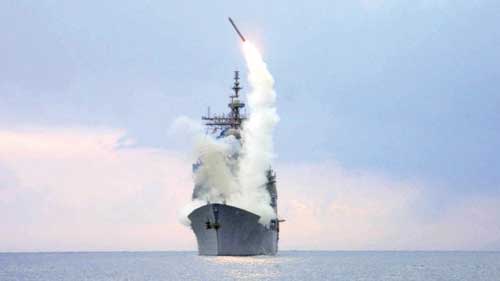.jpg)
Washington—Last Shabbos President Barack Obama announced he wants to take limited military action in Syria as a consequence for what has proven to be a Sarin gas attack by the Assad government. In a forceful voice, the President spoke from the Rose Garden, “We are the United States of America. We cannot, and will not, turn a blind eye to what happened in Damascus.”
Thousands were injured and 1,469 died in a Sarin attack on a Damascus suburb on August 21. Instead of making a decision as Commander in Chief, as previous presdients have done, he asked for Congress to act. He said, “Our country will be better off” if Congress has its say. Yesterday, the Chairman of the Senate Foreign Relations Committee, began hearings to start the debate in the Senate. “The Senate Foreign Relations Committee will debate the Authorization for Use of Military Force in Syria. Senior Administration witnesses will testify before the Committee and the Congress will debate this issue actively, fully, and publicly,” he said in a statement on Sunday.
The House of Representatives will not go into session before September 9, so it is highly unlikely that an air strike will take place before then. In the meantime, Reuters reports that the military is reassessing targets in Syria and its military assets in the region. They have ordered the U.S.S. Nimitz and its entire service group to the Red Sea in case they will be needed.
The President and others want those limited strikes to take place. A goodly number of others do not want to see America involved in what would be a disastrous war in the most chaotic region in the world, where rule of law is seldom respected among combatants.
The President believes that retaliation against the regime is necessary, if only to show Assad, Iran and others that the world means business when it draws a red line against the use of chemical weapons. “This would not be an open-ended intervention. We would not put boots on the ground. Instead, our action would be designed to be limited in duration and scope. But I’m confident we can hold the Assad regime accountable for their use of chemical weapons, deter this kind of behavior, and degrade their capacity to carry it out,” he said in his announcement.
American forces are in a position to act, and the French are on board, but in England, Parliament rejected the Prime Minister David Cameron’s plea for retaliatory strikes, and the President paid attention, calling in Congressional leaders to discuss how to handle the crisis. While serving in the Senate, he felt that the decision to go to war should be done through Congress and The War Powers Act. He was against the war in Iraq and felt that President George W. Bush had violated the Constitution when going into Iraq.
Citing clear evidence, the president said Assad’s attack on his own people “is an assault on human dignity. It also presents a serious danger to our national security. It risks making a mockery of the global prohibition on the use of chemical weapons. It endangers our friends and our partners along Syria’s borders, including Israel, Jordan, Turkey, Lebanon and Iraq. It could lead to escalating use of chemical weapons, or their proliferation to terrorist groups who would do our people harm. In a world with many dangers, this menace must be confronted. …. The Chairman of the Joint Chiefs …. has indicated to me that our capacity to execute this mission is not time-sensitive; it will be effective tomorrow, or next week, or one month from now. And I’m prepared to give that order.”
He also said, “I’m comfortable going forward without the approval of a U.N. Security Council that so far has been completely paralyzed and unwilling to hold (Syrian President President Bashar al-) Assad accountable,”
“But having made my decision as Commander-in-Chief based on what I am convinced is our national security interests, I’m also mindful that I’m the President of the world’s oldest constitutional democracy. I’ve long believed that our power is rooted not just in our military might, but in our example as a government of the people, by the people, and for the people. And that’s why I’ve made a second decision: I will seek authorization for the use of force from the American people’s representatives in Congress.
Obama asked members of both parties in Congress to “take this vote for national security,” and said “all of us should be accountable as we move forward.”
The White House then sent Congress a draft resolution authorizing force against Syria to “deter, disrupt, prevent and degrade” the Assad regime’s ability to use chemical weapons. It doesn’t lay out a timeline for action or detail Obama’s strategy.
The leaders of the House decided not to call everyone back to Washington immediately, and will go back into session as scheduled on September 9. The Senate however, has taken immediate action. Senator Robert Menendez (D-NJ) chairman of the Senate Foreign Relations Committee is presiding over a hearing that began Tuesday which opens the debate on the Authorization for Use of Military Force in Syria.
Menendez added his own point of view, which coincides with that of the President. “It is my view that the use of military force in Syria is justified and necessary given the Assad regime’s reprehensible use of chemical weapons and gross violation of international law. I look forward to sharing these views with my colleagues in the days ahead as the Senate Foreign Relations Committee convenes to take up this vital national security issue.”
By Jeanette Friedman










